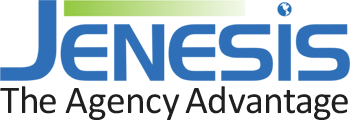
Gone are the days when social media was only used for posting pictures of what you had for lunch. Now any insurance agency that doesn’t use it as part of its marketing strategy is missing out on a significant opportunity. You can use social media to connect with current clients as well as potential ones. You can also use it for networking and connecting with your local communities.
Whether you already engage in social media marketing or are starting from scratch, the following information and tips should help you optimize your strategy and results.
Choose the Platforms to Focus On…
There are so many social media platforms that it is impossible for a small, independent insurance agency to create full-fledged strategies for each. Instead, you will want to focus your efforts on two or three social media platforms. Over time, you can expand your strategy to other platforms if you have enough time and resources to do so.
The key to choosing the right platforms to focus on is simple: Use the ones your customers are on. Hopefully, you have already collected some data about your audience and know which social media pages they are most likely to frequent. If you don’t, consider looking at the social media pages of competitors.
…But Claim All Profiles
While you only need to focus on a few social media pages at first, you still want to claim your profile on every platform. This prevents someone from impersonating you, however unlikely that may seem. It also prevents someone from taking any handles you may want to use later.
On top of that, it gives you the chance to link to your active profiles on each inactive one.
As a refresher, the following are the most important social media platforms to claim your profile for:
- YouTube
You may also want to consider claiming your profile on:
- TikTok
- Snapchat
Set Clear Goals
As with any other type of marketing for your insurance agency, you should set clear goals for your social media marketing endeavors. This makes it easier to evaluate whether you have reached them as well as monitor your progress toward them.
The following are some examples of general goals for social media marketing:
- Generate leads
- Grow your audience
- Increase engagement
- Build your network
- Increase brand awareness
- Drive traffic to your website
Use those as the basis for your goals, but then make yours specific. Instead of saying “increase engagement,” for example, have a goal to reach a set number of each likes, shares, and comments. Or instead of saying you want to “grow your audience,” choose a number or percentage by which you want to grow it.
Post Content Regularly
One of your goals with social media marketing is to increase engagement and build a relationship with clients and potential clients. You do this by making posts on a daily basis. The key is to remember to be consistent!
What Type of Content to Post
The important thing to remember is that not all of your posts should be salesy. Yes, you want a few that directly encourage people to get insurance through you or promote cross-selling. But if your account is too promotional, you will lose followers and engagement.
To keep things interesting and boost engagement, mix those salesy posts with useful or interesting posts that don’t directly promote your agency. Some examples include:
- Industry news
- FAQs
- Guides on choosing insurance
- Guides on saving with insurance
- Links to useful financial tools
- Links to educational content on your website
- Content related to maintaining your home and vehicles
- Community events
- Information on how various life events (marriage, divorce, graduations, etc) can impact insurance needs
The bonus of posting this type of useful content is that it encourages your followers to see you as an industry expert. They will see that you are knowledgeable about insurance and be more likely to want to work with you.
Use Paid Ads as Well
While simply creating content for social media will likely deliver a small boost to marketing, you should expect to have to pay to see the best results. As such, make sure you budget for paid ads on your chosen platforms.
Most social media platforms let you use targeted ads, meaning your ads will only appear to people who fit within the criteria you outline. This lets you stick to your budget by only paying for ads that go to your target audience.
Depending on how much time you have and your budget, you may even want to consider hiring an expert to set up your social media pages, just like you would hire Jenesis to help with your insurance agency’s website design.
Regularly Evaluate and Adjust
As with any other marketing strategy, make sure to regularly assess your social media marketing via data. Then, use that data and analysis to see if you need to make changes and where to make those changes.
Conclusion
Every insurance agency should have a social media marketing strategy. Be sure to claim your profiles on every platform, but focus your efforts on the two or three platforms that your target audience uses the most. Regularly post content, including content that isn’t promotional in nature, and be sure to budget for paid ads. Remember to evaluate your progress toward your goals so you know if you have to adjust your strategy.
